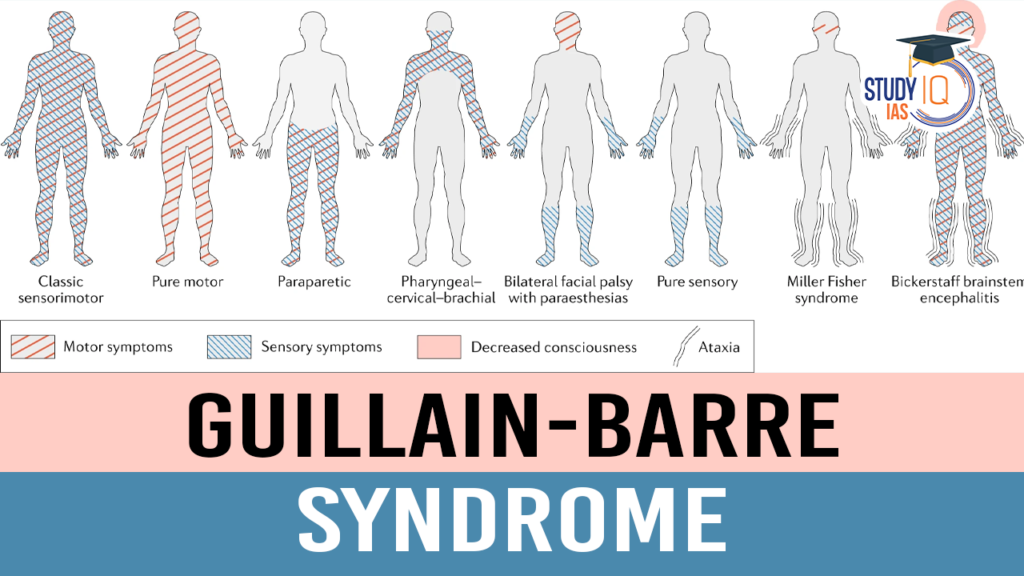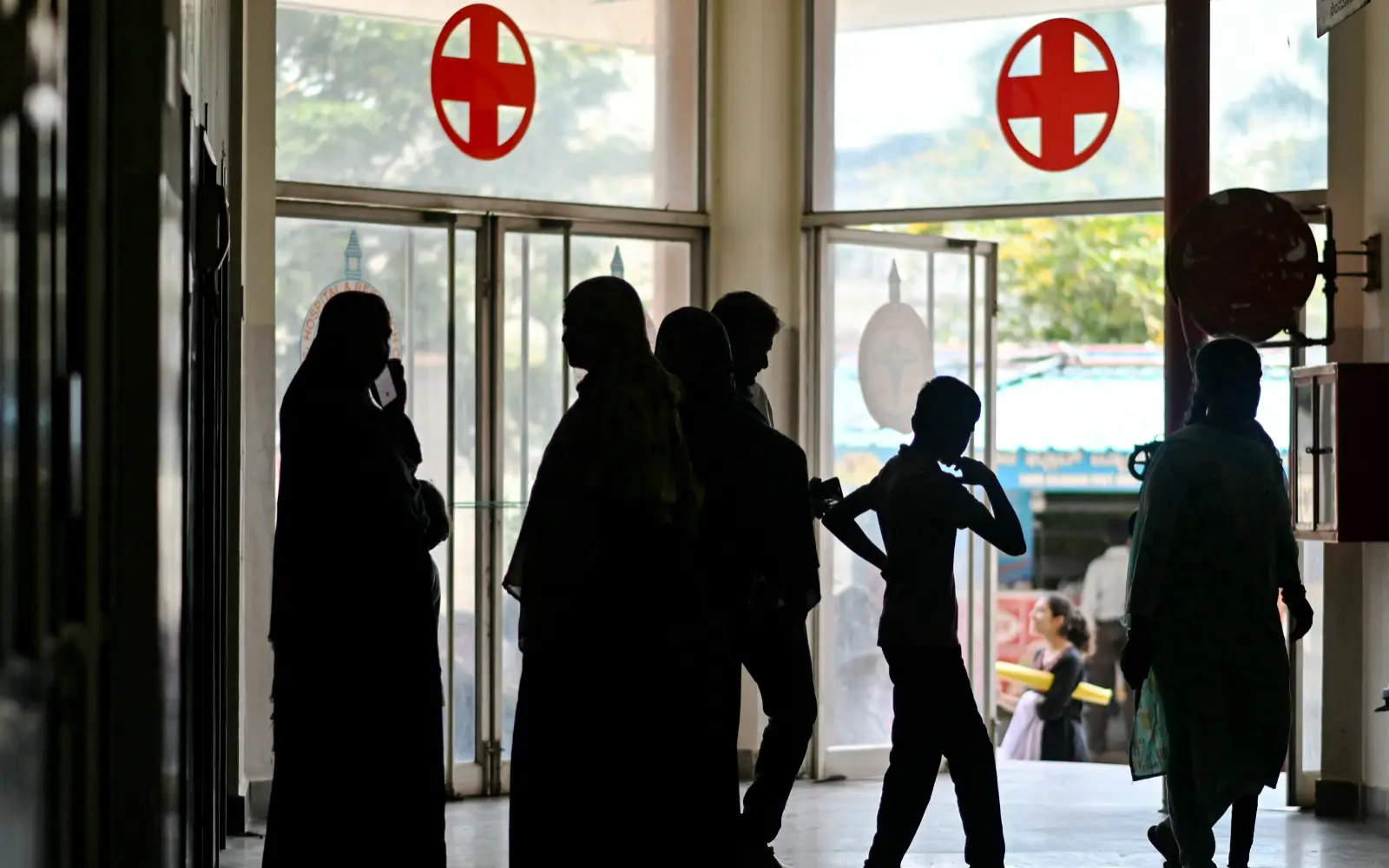In recent weeks, Maharashtra has been shaken by a dramatic surge in cases of Guillain-Barre Syndrome (GBS), a rare but dangerous neurological disorder. Just last month, a 53-year-old hospital attendant from Mumbai lost his battle with GBS—a tragic first fatality that has sent shockwaves through the state. This unsettling development has now pushed the death toll to eight, and health experts warn that the epidemic could worsen if immediate steps are not taken.

A Closer Look at the Crisis
Guillain-Barre Syndrome is an autoimmune condition where the body’s own defenses mistakenly attack the peripheral nerves. The symptoms can be alarming: patients often experience sudden muscle weakness, tingling sensations, and, in severe cases, paralysis. Although the disorder is uncommon, its rapid onset can leave little time for effective intervention. Many who fall ill with GBS have recently suffered from respiratory or gastrointestinal infections, a fact that has led experts to suspect a link to bacterial contamination—specifically involving the bacterium Campylobacter jejuni, which is known to thrive in contaminated water and food.
In Maharashtra, Pune has emerged as the epicenter of this outbreak. Local health authorities report that over 190 cases have been identified in the last month alone. This worrying trend has prompted the Brihanmumbai Municipal Corporation (BMC) to act swiftly. They have allocated 50 intensive care unit (ICU) beds equipped with ventilators across several medical colleges in Mumbai, ensuring that the state’s healthcare infrastructure is prepared for a potential influx of patients. Hospitals across the region—both public and private—have been asked to report any new cases without delay.
What Are the Warning Signs?
Recognizing the symptoms of GBS is critical, as early intervention can greatly improve patient outcomes. Common signs include:
• Muscle Weakness: Often starting in the legs and sometimes spreading to the upper body, this is the most frequently observed symptom.
• Tingling Sensations: Patients may experience abnormal sensations, such as pins and needles.
• Difficulty Breathing: As the condition progresses, respiratory muscles may become affected, making breathing difficult.
• Rapid Onset of Symptoms: Unlike some other neurological conditions, GBS can develop quickly, leaving little time for treatment.
Expert Insights and Public Reassurance
Despite the rising numbers, health officials are urging calm. Dr. Daksha Shah, the executive health officer at BMC, emphasized that while the spike in GBS cases is indeed alarming, the disorder is not contagious. “It is important to understand that GBS does not spread from person to person,” she explained. “The recent outbreak in Pune appears to be localized, and there is no evidence to suggest that Mumbai or other parts of Maharashtra are experiencing a widespread epidemic.”
This reassurance is echoed by several experts, who stress that prompt medical attention is key to managing the condition. They advise that anyone experiencing symptoms such as sudden limb weakness or difficulty breathing should seek immediate help. Early treatment, they note, can significantly reduce the severity of the disease and improve recovery chances.
Steps for Prevention and Protection
Given the current scenario, preventive measures are more important than ever. Here are some practical tips recommended by healthcare professionals:
• Practice Good Hygiene: Frequent handwashing with soap and water can help prevent the infections that often precede GBS.
• Drink Safe Water: Only consume water that has been boiled or properly purified to avoid exposure to harmful bacteria.
• Be Vigilant: If you notice unexplained weakness or tingling in your limbs, don’t wait—contact a healthcare provider immediately.
Looking Forward
Reflecting on everything, this surge in GBS cases is a stark reminder that our health can change in an instant. Every new case is a call for us to pay closer attention. Local health officials are working hard—not only reacting to the crisis but also stepping up efforts to improve water safety, boost diagnostic capabilities, and educate the community. I truly believe that by enhancing our surveillance and making sure our hospitals are ready, we can eventually get ahead of this outbreak and keep our communities safer.
Final Thoughts on GBS
This outbreak may be rare, but the loss of even one life is a painful reminder of how fragile our health can be. If you or someone you know experiences symptoms like sudden weakness, tingling, or trouble breathing, don’t wait—get help immediately. By taking simple steps like practicing good hygiene and ensuring our drinking water is safe, we all play a part in protecting ourselves. Let’s support one another and listen to our doctors, because what we do today can help build a safer, healthier future for everyone in Maharashtra.
References
• According to an article titled “GBS outbreak: 53-year-old man dies of Guillain-Barre Syndrome in Mumbai, Maharashtra toll rises to 8” published by The Times of India on February 12, 2025, the recent fatality in Mumbai has heightened concerns about the outbreak.
• A piece from The New Indian Express, “Campylobacter jejuni believed to be cause behind outbreak of Guillain-Barre Syndrome,” published on February 13, 2025, suggests a connection between recent stomach infections and the surge in GBS cases.
• A World Health Organization report, “WHO assists response to Guillain-Barré Syndrome in Pune,” released on January 31, 2025, confirms the localized nature of the outbreak in Pune and highlights measures being taken to contain it.
Also Read About : The Heart Attack Warning Signs You Can’t Afford to Ignore!
Visit Us At : https://g.co/kgs/rTqAjgt





